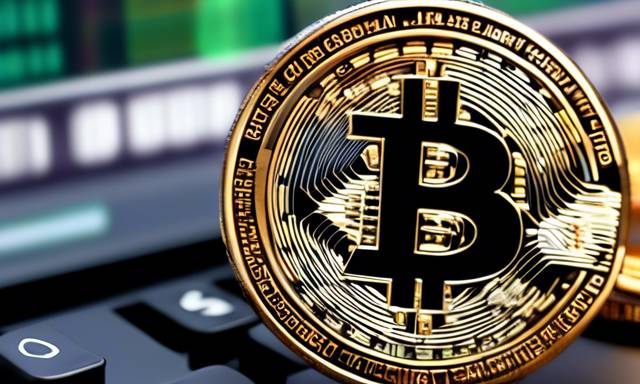Understanding the SEC’s Changing Narrative on Crypto Regulation 📈
This article delves into the evolving stance of the U.S. Securities and Exchange Commission (SEC) on cryptocurrency regulation. It highlights the agency’s recent admissions regarding its terminology and the implications of these changes on digital asset classifications and market practices.
SEC’s Scrutiny on Cryptocurrencies 🕵️♂️
The SEC has found itself under significant pressure for its regulatory strategies surrounding cryptocurrencies, particularly in how it defines digital tokens as “crypto asset securities.” The agency recently clarified that its past use of the term “securities” was not intended to label the tokens themselves as such. This clarification was part of an amended complaint against the crypto exchange, Binance, and has prompted a wave of criticism aimed at the SEC for its lack of regulatory clarity.
Shifting Terminology: Clarity or Confusion? 🤔
The SEC has historically pursued cryptocurrency firms on the grounds that they engage with unregistered “crypto asset securities.” However, in a recent filing, the regulator explained that this term was simply a shorthand to communicate the broader set of contracts and expectations surrounding these assets, not a direct classification of the assets themselves.
Despite referencing earlier cases like Telegram, the SEC acknowledged confusion stemming from its previous terminology and stated that it will refrain from using “crypto asset securities” in this ambiguous fashion going forward.
SEC’s Legal Maneuvers Against Binance ⚖️
During its ongoing litigation with Binance, the SEC has accused the exchange of breaching U.S. securities laws by offering what it once termed as “crypto asset securities.” While the SEC’s list of allegations continues to expand, it has also taken a step back from previously generalized applications of the securities label for digital tokens.
In the latest amendment to its complaint filed on September 12, 2024, it emphasized that its terminology does not equate to designating the assets directly as securities but rather describes the broader framework of related agreements and investor expectations.
Crypto Industry’s Response to Regulatory Shifts 🚨
Reactions from the crypto community have been predominantly critical. Industry advocates argue that the SEC’s previous actions contradict its new position. For instance, the classification of XRP as a “digital asset security” raises significant questions about the consistency of the SEC’s regulatory framework.
Prominent figures such as Paul Grewal of Coinbase have voiced concerns on social media, pointing to the SEC’s admission in its amended complaint that its longstanding claims are misleading. Grewal noted the agency’s acknowledgment of its role in promoting confusion through its misrepresentation of tokens as securities.
Similarly, Stuart Alderoty, Chief Legal Officer at Ripple, asserted that the SEC’s terminology is essentially unfounded. He emphasized that the term “crypto asset security” lacks a solid legal foundation and highlighted the necessity for clear evidence of contractual elements to substantiate such a classification.
Implications for Binance and Other Crypto Entities 📉
The ongoing lawsuit against Binance has sparked regulatory debates and raised critical questions about the future of crypto firms facing similar legal challenges. In July 2024, the SEC’s attempt to bypass certain legal requirements has been viewed by some as a strategic move aimed at strengthening its case without needing to demonstrate whether each token meets the Howey test—a legal criterion for defining securities.
As the SEC contemplates additional tokens involved in alleged securities violations, such as Cosmos Hub and Axie Infinity, the regulatory landscape appears increasingly complex and contentious.
Nevertheless, despite its recent admission about terminological vagueness, the SEC continues to actively enforce its interpretation of securities laws within the cryptocurrency sector. The agency has also instigated other legal actions and reached settlements with financial service companies accused of engaging with unregistered crypto assets.
Future of Crypto Regulation: A Pivotal Moment ⚡
Gary Gensler, the SEC Chair, has remained at the forefront of this regulatory approach, often asserting that many cryptocurrencies should fall under the regulatory umbrella of the SEC. This perspective has not only provoked opposition from crypto stakeholders but has also drawn criticism regarding the agency’s hiring practices, suggesting potential political motivations in its enforcement strategies.
As Binance prepares to respond to the SEC’s adjusted complaint by October 11, 2024, this case represents a significant moment that may shape the future direction of crypto regulation in the United States.
Hot Take: Navigating the Future of Cryptocurrency Regulation 🔍
The discourse surrounding the SEC’s regulatory approach to cryptocurrencies demonstrates the complexities and rapid changes within this evolving market landscape. As the SEC modifies its language and strategies amidst backlash from industry players, stakeholders must remain vigilant about how these developments will influence the regulatory framework and operational practices within the crypto sector.





 By
By

 By
By
 By
By
